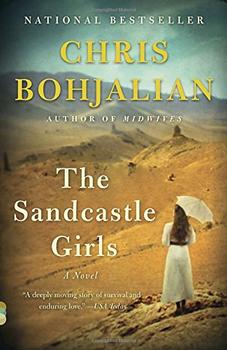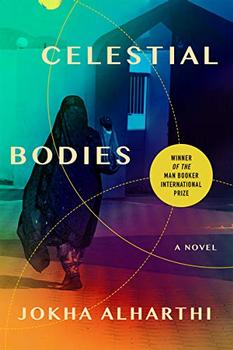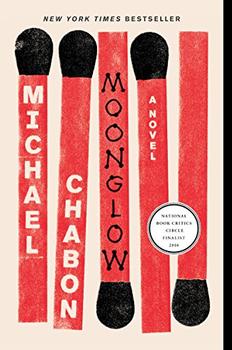Summary | Excerpt | Reading Guide | Reviews | Beyond the book | Read-Alikes | Genres & Themes | Author Bio

A Novel
by Chris BohjalianChris Bohjalian's latest novel, The Sandcastle Girls, was inspired by his family's Armenian heritage. Much of the plot takes place against the backdrop of the Ottoman Empire's systematic elimination of the Armenian Christian population, known by later generations as the Armenian Genocide (see backstory). In a quote from the book, the author contends:
1915 is the year of the Slaughter You Know Next to Nothing About. The anniversary of its commencement, its centennial, is nearing. If you are not Armenian, you probably know little about the deportations and the massacres: the death of a million and a half civilians. Meds Yeghern. The Great Catastrophe. It's not taught much in school, and it's not the sort of thing most of us read before going to bed.
The author does a masterful job of educating readers about the Armenian genocide while creating a near-perfect work of historical fiction.
The Sandcastle Girls is a book within a book. The overlaying tale is of Laura Petrosian, a middle-aged American novelist who becomes obsessed with learning her grandparents' story. She recounts her life growing up in the United States, visiting her Armenian grandfather's home, which the rest of the family referred to as the "Ottoman Annex." She also relates her grandparents' mysterious words and actions - things she hadn't given much thought to as a child, but which make more sense as she comes to better understand their history.
Interwoven with Laura's first-person narrative is the text of the book she's writing: an account of her grandparents' meeting and subsequent romance in Aleppo, Syria, set against the backdrop of the Armenian genocide and the last days of the Ottoman Empire. Their love blossoms in spite of the terrible circumstances that surround its inception.
The plotlines for both story lines work equally well - a difficult task for any author to achieve. The contemporary and historical sections each have a different flavor, but both are well written and engaging with interesting, three-dimensional characters. I found the book difficult to put down, and the pace didn't flag as the author shifted from present to past and back again; I wanted to learn more about both stories.
The Armenian genocide plays a huge role throughout the novel but doesn't overwhelm the narrative. The main characters are either observers or describe events in the past; most of the truly gruesome scenes are not related. This has the effect of distancing readers from the most horrific aspects of the massacre - enlightening without too much intensity. Don't get me wrong, the author does recount some rather stomach-churning incidents, but these are relayed in a way as to allow readers a certain level of detachment.
My only quibble with the novel is that occasionally the love story becomes a little melodramatic. I imagine those who enjoy fictional romances will find the relationship between the main characters satisfying, while those who prefer that their novels steer away from sentimentality will find other aspects entertaining enough to overlook this minor weakness in an otherwise fine narrative.
Bohjalian will almost certainly have another entry on the bestseller lists with The Sandcastle Girls; the novel will appeal to a wide variety of readers, particularly those who enjoy historical fiction. Its layered themes and historical content also make it an ideal selection for book clubs.
Additional Info
To find out more about the story behind The Sandcastle Girls, read author Chris Bohjalian's takeon it.
![]() This review was originally published in The BookBrowse Review in September 2012, and has been updated for the
April 2013 edition.
Click here to go to this issue.
This review was originally published in The BookBrowse Review in September 2012, and has been updated for the
April 2013 edition.
Click here to go to this issue.

If you liked The Sandcastle Girls, try these:

by Jokha Alharthi
Published 2019
In the village of al-Awafi in Oman, we encounter three sisters: Mayya, who marries after a heartbreak; Asma, who marries from a sense of duty; and Khawla, who chooses to refuse all offers and await a reunion with the man she loves, who has emigrated to Canada.

by Michael Chabon
Published 2017
Following on the heels of his New York Times bestselling novel Telegraph Avenue, Pulitzer Prize-winning author Michael Chabon delivers another literary masterpiece: a novel of truth and lies, family legends, and existential adventure - and the forces that work to destroy us.
It was one of the worst speeches I ever heard ... when a simple apology was all that was required.
Click Here to find out who said this, as well as discovering other famous literary quotes!
Your guide toexceptional books
BookBrowse seeks out and recommends the best in contemporary fiction and nonfiction—books that not only engage and entertain but also deepen our understanding of ourselves and the world around us.